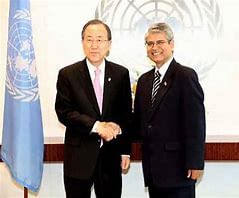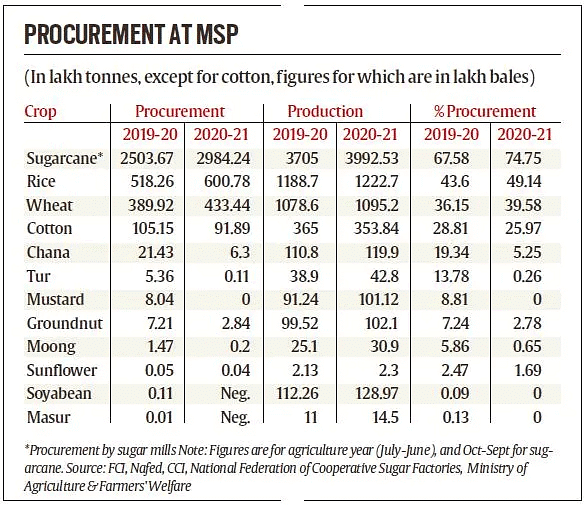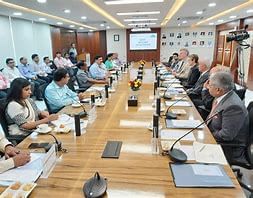UPSC Daily Current Affairs- 18th February 2024 | Current Affairs & Hindu Analysis: Daily, Weekly & Monthly PDF Download
GS-II
Prakash Singh Guidelines on the Appointment of the DGP
Subject: Polity and Governance

Why in News?
The Ministry of Home Affairs (MHA) has told “defaulting” states to follow the SC’s directives (in the Prakash Singh case) on the appointment of the Director General of Police (DGP).
- This development came days after a report highlighting the trend of state govts (Andhra Pradesh, Telangana, UP, Punjab, etc) not appointing regular police chiefs (DGPs) despite the availability of eligible officers.
Director General of Police (DGP):
- About: In India, the DGP is the highest-ranking police officer in a state or union territory, and is also known as the State Police Chief.
- Contention over the appointment process:
- Several states have passed laws or executive orders to circumvent the empanelment process (required for the appointment of DGP) of the UPSC. The West Bengal government has asked the SC to modify its 2018 judgement.
- Reasons for the contention:
- The police and public order are solely within the jurisdiction of the state
- Until Parliament passes a new statute, the UPSC does not have the authority to consider and appoint the DGP.
- Under the principles of judicial review or in the use of the court's extraordinary authority (Article 142 - Power to issue orders for doing complete justice), the SC should not limit a state's legislative capabilities.
- Contention over the appointment process:
- The SC’s Prakash Singh Judgement on Police Reforms:
- Background: Prakash Singh, who served as the DGP of the Uttar Pradesh Police and the Assam Police, among other positions, filed a PIL in the SC in 1996, requesting police reforms.
- The landmark judgement of 2006: The SC, in mandating all states and UTs to implement police reforms, outlined a list of steps that governments must follow to ensure that the police may execute their jobs without fear of political interference.
- The measures suggested by the SC: The 7 main directives from the SC in the verdict were -
- Fixing the tenure and selection of the DGP: This is to avoid the situations where officers about to retire in a few months are given the post.
- No political interference: In order to ensure this, a minimum tenure was sought for the Inspector General of Police so that they are not transferred mid-term by politicians.
- Constitute Police Establishment Boards (PEB): Comprising police officers and senior bureaucrats to insulate powers of postings and transfers from political leaders.
- Set up the State Police Complaints Authority (SPCA): This is to give a platform where common people aggrieved by police action could approach.
- Separation of investigation and law and order functions of police.
- Set up State Security Commissions (SSC) and a National Security Commission: They will advise the government (State/National as the case may be) on broad policy guidelines for better policing, organisational goals to initiate preventive measures, etc.
- How did states respond to these directives? According to a Commonwealth Human Rights Initiative (CHRI) report (2020),
- Not a single state fully complied with the apex court directives in the Prakash Singh case.
- After 2006, 18 states passed or updated their Police Acts, although none of them entirely matched the legislative models outlined in the 2006 decision.
- Some states pointed out “flaws” in the SC judgement in the Prakash Singh case.
- The CM should have some discretion over who is best suited to lead the police force and the government’s choice may not necessarily be among the three senior-most.
- The Case of Appointment of Temporary DGPs:
- States where temporary DGPs were appointed:
- While Andhra Pradesh, Telangana, UP and Punjab have had such temporary DGPs for almost or more than a year, 3 other states, Uttarakhand, Odisha and West Bengal, and the UT of J&K, have recently appointed “acting DGPs”.
- UP has had four acting DGPs in the past 20 months.
- The MHA Directive to the Defaulting States:
- The defaulting states must follow SC directions and Union Public Service Commission guidelines on appointment of regular DGPs with a tenure of two years.
- The temporary or “acting DGPs” are to be appointed only in exceptional circumstances.
- States where temporary DGPs were appointed:
Source: The Indian Express
India on UNSC reform
Subject: International Relations

Why in News?
India’s Permanent Representative at the UN Ambassador Ruchira Kamboj, speaking at the Inter-Governmental Negotiations on Security Council Reform stressed upon the need for comprehensive reform of the Security Council.
- India has questioned how much longer can the will of five permanent members of the UNSC continue to override the collective voice of the world organisation’s 188 member states.
- India also stressed that equity must be the cornerstone of global efforts to reform the 15-nation UN body.
- Equity demands that every nation, irrespective of its size or power, be afforded an equal opportunity to shape global decision-making.
- India highlighted that expanding only in the non-permanent category of the Council will not solve the problem.
- It will in fact will widen the difference between permanent and non-permanent members even more, thereby perpetuating inequities instead of removing.
United Nations Security Council (UNSC)
- About
- The United Nations Charter established six main organs of the United Nations, including the UN Security Council (UNSC).
- UNSC has the primary responsibility for the maintenance of international peace and security.
- Under the UN Charter, all Member States are obligated to comply with Council decisions.
- The Security Council has a permanent residence at the United Nations Headquarters in New York City.
- Powers:
- Establishment of peacekeeping operations.
- Establishment of international sanctions.
- Authorisation of military action through Security Council resolutions.
- Members:
- The U.N. Charter provides for 15 members of the UNSC:
- Five permanent members are known as P5, including the United Kingdom, China, France, Russia and the US.
- They have veto power over decisions of the UNSC.
- 10 non-permanent members. Each year the 193-member General Assembly elects five non-permanent members for a two-year term at the UNSC.
UNSC Reform
- About
- UNSC reform refers to the process of revising and updating the structure, composition, and functioning of the United Nations Security Council (UNSC).
- The UNSC is one of the six principal organs of the United Nations and is primarily responsible for maintaining international peace and security.
- However, its current configuration and decision-making processes is not representative of the current geo-political realities.
- Hence, there is a demand for reform in the UNSC.
- Reforms in areas
- The United Nations Security Council (UNSC) reform includes five key issues:
- Categories of membership
- The veto held by the five permanent members
- Regional representation
- The size of an enlarged Council and its working methods
- The Security Council-General Assembly relationship
- The United Nations Security Council (UNSC) reform includes five key issues:
- Challenges faced
- Resistance from Current Permanent Members (P5)
- Lack of Consensus among Member States
- Different countries have diverse interests, priorities, and visions for how the council should be reformed.
- Complexity of Reform Proposals
- There are various proposals for reforming the UNSC, including those related to the expansion of permanent and non-permanent membership, the question of veto power, and regional representation.
- Finding a consensus on these complex issues requires diplomatic negotiation and compromise among member states.
- Slow Pace of Negotiations
- The process of UNSC reform has been characterized by slow progress and incremental changes.
- Negotiations within forums like the Inter-Governmental Negotiations (IGN) have often been protracted, with divergent views among member states impeding substantive reform efforts.
Inter-Governmental Negotiations (IGN)
- About
- IGN is a series of discussions and negotiations among member states of the United Nations aimed at reforming the structure and functioning of the UNSC.
- The IGN process was initiated to address the perceived need for the expansion of the Security Council's membership to better reflect contemporary geopolitical realities and to enhance its legitimacy and effectiveness.
- IGN was formally recognized by the United Nations General Assembly (UNGA) in 2008 as a platform for member states to engage in discussions and negotiations regarding the reform of the UNSC.
- However, the diplomatic impasse persists in part because member states have never agreed to negotiate on.
- Composition
- The IGN is composed of several different international organisations, namely:
- The African Union;
- The G4 nations (India, along with Brazil, Japan and Germany are pressing for a permanent seat in the reformed UNSC);
- The Uniting for Consensus Group (UfC), also known as the "Coffee Club";
- The L.69 Group of Developing Countries;
- The Arab League; and
- The Caribbean Community (CARICOM).
- The IGN is composed of several different international organisations, namely:
- Features
- Each group represents a different set of positions vis-a-vis reforming the UNSC.
- The group's conversations are considered "informal" in nature due to the lack of single text, and thus, UNGA rules of procedure do not apply.
- But in 2015, a framework document was agreed when it comes to the reform, which can be the basis for future talks.
Source: MSN
GS-III
The Cost of Legal MSP is Greatly Exaggerated
Subject: Economics

Why in News?
The resurgence of farmers on the streets, demanding a legal guarantee for Minimum Support Prices (MSP), highlights the longstanding struggle for stability in the agricultural sector.
- Amid these developments, it is important to look into the complexities surrounding MSP, the misconceptions that fuel apprehensions, and the potential benefits of legalising this mechanism.
Understanding the Purpose Behind MSP
- Price Stability for Essential Commodities
- MSP serves as a crucial mechanism for maintaining stability in the prices of essential agricultural commodities.
- By establishing a floor price, it acts as a shield against market volatility, safeguarding farmers from unpredictable fluctuations in the prices of their produce.
- Risk Mitigating Mechanism for Farmers
- Farming is inherently risky, influenced by factors such as weather conditions, pest attacks, and market dynamics.
- MSP provides farmers with a level of income certainty, offering a buffer against financial losses during periods of low market prices.
- Encouraging Crop Diversification and Food Security
- MSP is not only about stabilising prices for major crops like rice and wheat but also serves as an incentive for farmers to diversify their crops.
- By extending MSP to a variety of crops, the agricultural sector can witness diversification, promoting sustainable farming practices and reducing dependency on specific crops.
- MSP plays a pivotal role in ensuring food security for the nation by maintaining a stable production environment for key staples.
- By providing farmers with a guaranteed minimum price, MSP encourages sustained production of essential food items, contributing to the overall food security of the country.
- Reflects Government's Commitment to Farmers
- MSP reflects the government's commitment to supporting the agricultural community and acknowledging its crucial role in the country's economy.
- By ensuring a minimum price, the government signals its dedication to the welfare of farmers, creating a sense of security and stability within the agricultural sector.
MSP Implementation Challenges
- Selective Intervention and Limited Coverage
- While the government announces MSP for 23 crops annually, the actual implementation is often selective, with meaningful intervention observed mainly in the case of major crops like rice and wheat.
- This limited coverage undermines the overarching goal of MSP to provide stability across a broader spectrum of agricultural commodities.
- Moreover, despite the government's yearly MSP announcements, the actual intervention in the market remains inconsistent.
- MSP Implementation Bias
- The unequal application of MSP, focusing predominantly on specific crops, creates a bias that marginalises farmers cultivating other essential commodities.
- This bias contributes to regional disparities and affects the economic well-being of farmers involved in the cultivation of non-major crops.
- Disconnect Between Market Price and MSP
- The disconnect between market prices and MSP is a significant challenge, as the government's intervention is primarily triggered when market prices fall below the MSP.
- The sporadic nature of intervention further exacerbates uncertainties for farmers, who may face financial distress during periods of market downturns.
- Perceived Government Apathy
- Farmers perceive a lack of genuine interest or urgency from the government in effectively implementing MSP.
- This perceived apathy contributes to distrust and frustration among farmers, fuelling protests and demands for a legal guarantee to ensure consistent and widespread implementation.
- Political Hesitation and Decision-Making Delays
- Despite political consensus supporting a legal guarantee for MSP, successive governments have hesitated to formalise this mechanism.
- The delay in decision-making perpetuates uncertainties in the agricultural sector and undermines the effectiveness of MSP as a stabilizing force.
Obstacles in Legalising MSP
- Fiscal Concerns
- Exaggerated claims about the fiscal costs of guaranteeing MSP have hindered its legalisation.
- Political consensus supports the legal guarantee, but concerns over excessive fiscal requirements have deterred successive governments.
- Prevalent Misconceptions
- The notion that legalising MSP means the government must procure all agricultural produce is a fallacy.
- Government intervention is necessary only when market prices fall below MSP, and it does not require the procurement of the entire marketable surplus.
- Misunderstanding in Procurement Costs and Subsidies
- The cost of procuring rice and wheat is often misunderstood as the cost of the MSP program, but it is a subsidy to consumers, not farmers.
- For other crops, government procurement is not a cost unless sold with a subsidy, and the actual cost is the difference between economic cost and issue price.
Possible Benefits of Legalising MSP
- To Ensure Consistent Implementation
- Legalising Minimum Support Prices (MSP) provides a formal and legally binding framework, ensuring consistent and uniform implementation across all crops.
- A legal guarantee mitigates the current challenges of selective intervention, providing farmers with a reliable safety net.
- To Promote Inclusive Agricultural Growth
- Legalising MSP for a wider variety of crops ensures that the benefits of price stability are not limited to specific segments of the farming community.
- Small and marginal farmers cultivating diverse crops can access the protective shield of MSP, contributing to inclusive agricultural growth.
- To Reduce Farmer Vulnerability
- Legalising MSP reduces the vulnerability of farmers to market fluctuations, ensuring a minimum income for their produce.
- Farmers can navigate uncertainties more confidently, knowing that the government is legally bound to intervene when market prices fall below the MSP.
- To Increase Rural Economy
- A guaranteed MSP contributes to the economic well-being of farmers, leading to increased rural income.
- This, in turn, stimulates the rural economy by boosting demand for goods and services, creating a positive ripple effect on various sectors.
- To Balance Consumer Subsidies
- Legalising MSP helps in distinguishing the cost of procuring rice and wheat, often mistaken as the cost of MSP programs, from actual subsidies to consumers.
- This clarity aids in policy discussions and ensures that subsidies are targeted appropriately, benefitting both farmers and consumers.
- To Enable Strategic Government Operations
- A legal framework enables the government to conduct strategic operations in domestic and international markets.
- By selling procured produce at minimal mark-ups during times of higher market prices, the government can manage inflation surges, ensuring price stability for consumers.
Conclusion
- Legalising MSP offers a comprehensive solution to the challenges faced by the agricultural sector.
- It not only ensures consistent implementation but also promotes diversification, inclusivity, and economic resilience, contributing to the overall well-being of farmers and the prosperity of the rural economy.
- By dispelling misconceptions and addressing concerns, policymakers can pave the way for a more secure and prosperous future for the backbone of our nation - the farmers.
Source: The Hindu
 |
Download the notes
UPSC Daily Current Affairs- 18th February 2024
|
Download as PDF |
EU’s Digital Services Act (DSA)
Subject: Science and Technology

Why in News?
The Digital Services Act (DSA) was passed by the European Parliament in July 2022, aiming to enhance online safety and transparency for users within the European Union (EU).
- While initially applying to major platforms like Facebook and TikTok, the DSA now extends its regulations to all platforms except the smallest ones.
Understanding the Digital Services Act (DSA)
- Purpose: The DSA seeks to create a safer and more transparent online environment by regulating platforms offering goods, services, or content to EU citizens.
- Key Provisions:
- Removal of Illegal Content: Platforms are required to prevent and remove illegal or harmful content such as hate speech, terrorism, and child abuse.
- User Reporting: Platforms must provide users with mechanisms to report illegal content.
- Ad Targeting Restrictions: Criteria like sexual orientation or political beliefs cannot be used for targeted advertising, with additional protections for children against excessive or inappropriate ads.
- Algorithm Transparency: Platforms must disclose how their algorithms function and influence content display.
- Stricter Regulations for Large Platforms: Platforms reaching more than 10% of the EU population are subject to additional requirements, including data sharing, crisis response cooperation, and external audits.
Implications for Non-EU Regions
- Global Standard: While implemented by the EU, the DSA aims to set a global benchmark for online intermediary liability and content regulation, potentially influencing policies in other regions.
- Consistency in Policies: Platforms may adopt DSA-compliant changes universally to streamline operations, leading to broader effects beyond the EU.
- Example of Impact: The DSA’s influence extends beyond the EU, as seen in the standardization of features like USB Type-C ports on devices like the upcoming iPhone 15 series.
Motivation behind DSA Implementation
- Addressing Evolving Platform Dynamics: The DSA replaces outdated regulations to address the changing landscape of online platforms, emphasizing the need for improved consumer protection.
- Tackling Risks and Abuses: Major platforms have become quasi-public spaces, posing risks to users’ rights and public participation, prompting the need for stricter regulations.
- Fostering Innovation and Competitiveness: By creating a better regulatory environment, the DSA aims to promote innovation, growth, and competitiveness while supporting smaller platforms and start-ups.
Affected Online Platforms and Compliance Measures
- Large Platforms: Identified platforms like Facebook, Google, Amazon, and others must comply with DSA regulations.
- Compliance Initiatives:
- Google: Enhancing transparency reporting and expanding data access to researchers.
- Meta: Expanding its Ad Library and providing users with control over personalization.
- Snap: Offering opt-out options for personalized feeds and limiting personalized ads for younger users.
Enforcement and Penalties
- Non-compliant platforms face penalties of up to 6% of their global revenue.
- The Digital Services Coordinator and the Commission have authority to demand immediate actions from non-compliant platforms.
- Repeat offenders could face temporary bans from operating in the EU.
Conclusion
- The implementation of the Digital Services Act marks a significant step toward enhancing online safety and transparency within the EU.
- While initially targeting major platforms, its implications extend globally, setting standards for intermediary liability and content regulation.
Source: Tech Crunch
Global Pulse Confederation (GPC) held in New Delhi
Subject: Economics

Why in News?
The Global Pulse Confederation (GPC) has initiated the three-day convention — Pulses 24 — in New Delhi, India.
About Global Pulse Confederation (GPC)
| Description | |
| Formation |
|
| Headquarters |
|
| Mission |
|
| Focus Areas |
|
| Membership |
|
| India’s Connect |
|
Key Highlights from Pulses 24 Convention
- Production Growth: Pulses production in India has increased by 60% over the past decade, reaching 270 lakh tonnes in 2024 from 171 lakh tonnes in 2014.
- Partnership Goals: Mr. Goyal emphasized the partnership between NAFED and GPC, aiming to position pulses as a vital dietary component not only in India but also globally.
- Minimum Support Price (MSP): The Centre ensures an MSP offering 50% over the actual cost of production to farmers, resulting in attractive returns on investment. Significant increases in MSP for various pulses were highlighted, reaching as high as 117% in masoor and 90% in moong over the past decade.
- Self-Sufficiency by 2027: India’s progress towards self-reliance in chickpeas and other pulses, with efforts focused on achieving self-sufficiency in all pulses by 2027. Initiatives include the supply of new seed varieties and the expansion of tur and black gram cultivation.
- Global Knowledge Sharing: GPC president emphasized India’s potential to benefit from the conference by exchanging best practices and technological advancements in pulse cultivation from other countries.
- Focus on Smallholding Farmers: Pulses are noted for their soil benefits and nutritional value, particularly beneficial for smallholding farmers.
Source: Business Line
Digital Twin Initiative
Subject: Science and Technology

Why in News?
What is Digital Twin Technology?Department of Telecommunications (DoT) has introduced the ‘Sangam: Digital Twin’ initiative, inviting Expressions of Interest (EoI) from industry pioneers, startups, MSMEs, academia, innovators, and forward-thinkers.
- A digital twin is a digital representation of a physical object, person, or process, contextualized in a digital version of its environment.
- Digital twins can help an organization simulate real situations and their outcomes, ultimately allowing it to make better decisions.
- Context: The initiative aligns with the technological advancements of the past decade in communication, computation, and sensing, in line with the vision for 2047.
- Proof of Concept (PoC) in Two Stages: The initiative will be distributed in two stages, conducted in one of India’s major cities.
- First Stage: An exploratory phase focusing on clarifying horizons and creative exploration to unleash potential.
- Second Stage: A practical demonstration of specific use cases, generating a future blueprint for collaboration and scaling successful strategies in future infrastructure projects.
- Objectives:
- Demonstrate practical implementation of innovative infrastructure planning solutions.
- Develop a model framework for facilitating faster and more effective collaboration.
- Provide a future blueprint for scaling and replicating successful strategies in future infrastructure projects.
- Sangam: Digital Twin represents a collaborative leap towards reshaping infrastructure planning and design.
- It integrates 5G, IoT, AI, AR/VR, AI native 6G, Digital Twin, and next-gen computational technologies, fostering collaboration among public entities, infrastructure planners, tech giants, startups, and academia.
- Sangam brings all stakeholders together, aiming to translate innovative ideas into tangible solutions, bridging the gap between conceptualization and realization, and paving the way for groundbreaking infrastructure advancements.
Source: PIB
|
39 videos|4544 docs|971 tests
|
FAQs on UPSC Daily Current Affairs- 18th February 2024 - Current Affairs & Hindu Analysis: Daily, Weekly & Monthly
Ans. The Prakash Singh Guidelines provide a framework for the selection and appointment of the Director General of Police (DGP) to ensure transparency and accountability in the process.
2. What is the significance of the guidelines issued by Prakash Singh?$#
Ans. The guidelines aim to prevent political interference in the appointment of the DGP and ensure that the selection is based on merit and seniority rather than personal preferences.
3. How do the Prakash Singh Guidelines impact the functioning of the police force?$#
Ans. The guidelines help in maintaining the independence and professionalism of the police force by ensuring that the DGP is appointed based on objective criteria rather than political considerations.
4. How can the implementation of the Prakash Singh Guidelines improve law enforcement in the state?$#
Ans. By following these guidelines, the state can appoint capable and experienced officers as the DGP, leading to better law enforcement, efficient administration, and enhanced public trust in the police.
5. What role does the UPSC play in the appointment of the DGP as per the Prakash Singh Guidelines?$#
Ans. The UPSC is responsible for shortlisting and recommending candidates for the position of DGP based on their qualifications, experience, and suitability for the role, in line with the guidelines issued by Prakash Singh.




























